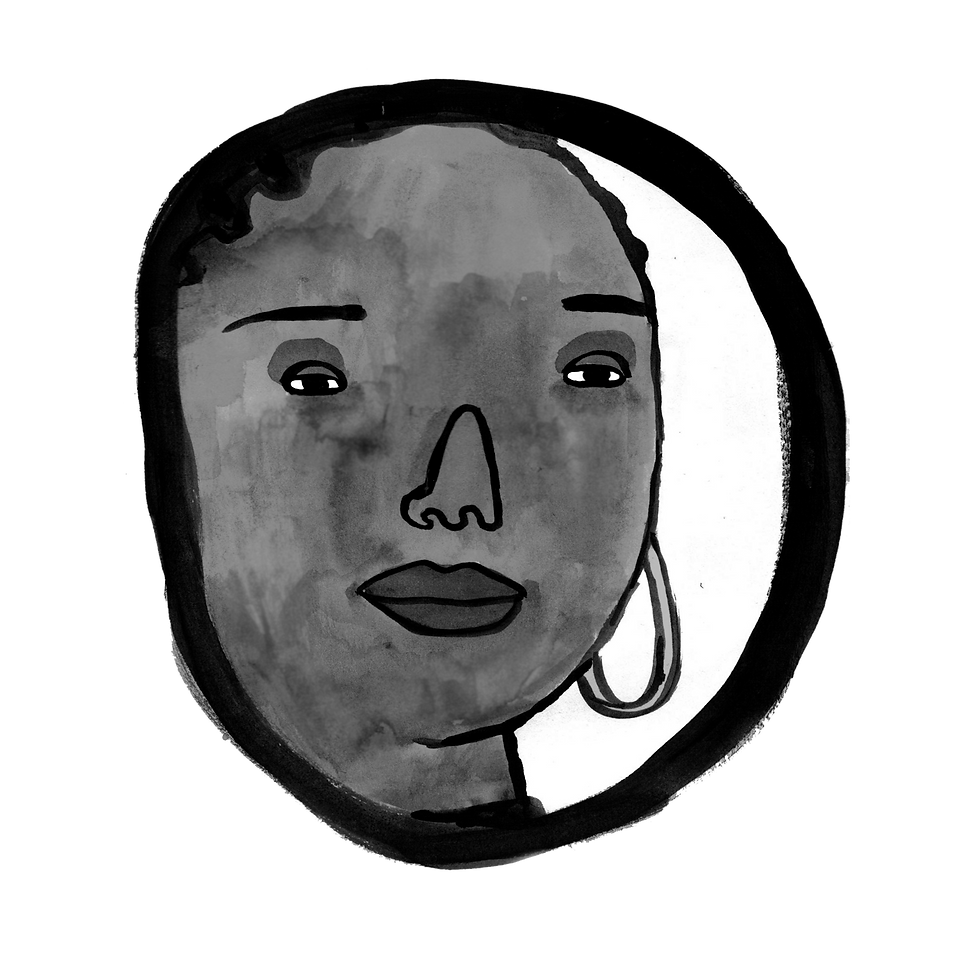Golden Shovel for My People by Bridget Minamore, after Margaret Walker
- Dead [Women] Poets Soc.
![Writer: Dead [Women] Poets Soc.](https://static.wixstatic.com/media/ce0ed3_ce7fcb58f304436681f4c649130ec237%7Emv2.jpg/v1/fill/w_32,h_32,al_c,q_80,enc_avif,quality_auto/ce0ed3_ce7fcb58f304436681f4c649130ec237%7Emv2.jpg)
- Jul 20, 2020
- 3 min read
Updated: Jul 12, 2021

Golden Shovel for My People
by Bridget Minamore
after Margaret Walker
This is where it started: I have been searching for
a new way of living breathing thriving but my
body has begun to fill with broken people /
The sounds they make feel infinite / Everywhere
I look—in each of my dark corners—I see singing /
I see masses marching searching hunting for their
new world, the home they knew each so-called slave
should would could be entitled to / And their solemn songs
are choking me / I have repeatedly
asked begged demanded this noise stop but their
mouths are taped open, their hands frozen—some dirges
need conducting; are too cold to let go of easily—and
I have been sitting inside myself with their
music bobbing like bad boats / Their ditties
on green repeat / Do I feel envy? At the assurance and
acceptance only the long-dead feel? / Music is licking my ears, their
knowledge knows nothing but the blues
but that is all they need / Meanwhile I know whites and
we all know that’s the problem / These songs last jubilees
and it’s obvious I can’t keep praying
for silence for an indefinite period of time / Their
music is a reminder to stay angry / My prayers
cannot hear themselves amongst the nightly
cacophony of my ancestors / My body wants to
be empty but it is full of black shards, it is an
example of yet another known unknown /
I wonder if the long-gone who haunt me think I am a god /
I should kneel at my own altar but I tried bending
and lost my balance and now I can’t stand up / Their
racket might be exhausting but when they sing my knees
refuse to knock / This is how it ends: I humbly
request an audience with my own black body/ I want to
search for new ways to live amongst the noise / I am an
item of measurement I cannot understand / My people are unseen /
They are inside me / The music scares holds hurts / You / Give me power
Margaret Walker was born in Birmingham, Alabama in 1915, and died in 1998. The daughter of a Methodist preacher, she moved to Chicago after college, where she became a member of South Side Writers Group alongside the likes of Richard Wright and Anna Bontemps. She was the first black woman in the United States to win a national writing prize, for her debut poetry collection For My People in 1942, which sits alongside her academic work, her three albums of poetry, and her novel Jubilee, which is based on the life of her enslaved great-grandmother.
The first of Walker’s poems I discovered was 'For My People' (the title poem of her first collection), which is perhaps her most famous; I use the first stanza of 'For My People' for the golden shovel I have written in response to her work. The poem means a lot to me—it seems to bounce between ballad and lyric, wry acknowledgement of the past alongside rousing call-to-arms for the present and future. She also utilises the listing of things in a way I found revolutionary in its simplicity when I first read it—why say one word when you can say 3 that mean similar but not the same thing? The more is more approach really stuck with me.
Most important of all, I feel Margaret Walker writes to and for a Black audience. There’s something about how she uses lyric and ballad, and how her writing is rooted in place (the American South) that has spoken to me, and continues to speak to me whenever I read her work.
This creative response was commissioned as part of Bridget Minamore's resurrection of Margaret Walker, for a séance on the Dead [Women] Poets Society national tour in 2019/20. This séance would have happened on 20 July 2020 at The Poetry Café, but was postponed due to the coronavirus pandemic. Read Nina Mingya Powles's zine for Theresa Hak Kyung Cha here. Book to join the rescheduled séance online on 20 July 2021 here, and find out about future events by signing up to our free and fun mailing list.
This project is supported by Arts Council England. Illustrations by Lily Arnold.




Comments